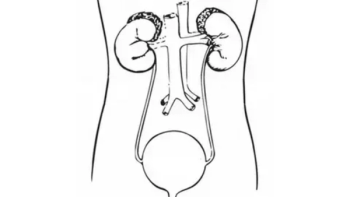About MonumenTAL-1
Trial Name: A Phase 1, First-in-Human, Open-Label, Dose Escalation Study of Talquetamab, a Humanized GPRC5D x CD3 Bispecific Antibody, in Subjects With Relapsed or Refractory Multiple Myeloma
Completion Date: March 3, 2025
Sponsors: Janssen Research & Development, LLC.
Recruitment Contact: 844-434-4210 or Participate-In-This-Study@its.jnj.com
Talquetamab, an investigational, off-the-shelf, T-cell redirecting bispecific antibody, is being investigated in a first-in-human study of patients with relapsed or refractory multiple myeloma (NCT03399799). The agent was recently granted breakthrough therapy designation from the FDA based on early results from the study.
In the phase 1/2, first-in-human, open-label, dose-escalation study, 260 patients with r/r multiple myeloma will be treated with talquetamab at 1 of 13 study locations in the United States, the Netherlands, Belgium, or Spain.
The study is being conducted in 2 parts. Part 1 is the dose-escalation phase during which patients receive talquetamab via intravenous (IV) infusion at a minimum anticipated biologic effect level-based starting dose until the end of treatment visit is completed. Subsequent dose levels are chosen based on the data, including pharmacokinetics, pharmacodynamics, safety, and preliminary tumor activity. In a separate arm, patients receive subcutaneous (SC) treatment with talquetamab to determine the safe and tolerable recommended phase 2 dose (RP2D).
The co-primary end points to be assessed in part 1 of the study are dose-limiting toxicity and the number of patients with adverse events. The secondary end points to be explored in part 1 include talquetamab serum concentrations, biomarker assessment, and the number of patients with talquetamab antibodies.
In part 2, patients are given an IV or SC injection of talquetamab at each putative RP2D as determined in part 1. The part-2 primary end point is safety and tolerability determined by the number of patients with AEs. The secondary end points to be assessed in part 2 include, biomarker assessment, overall response rate, clinical benefit rate, duration of response, time to response, and progression-free survival.
Eligibility requires patients to have documented initial diagnosis of multiple myeloma according to International Myeloma Working Group diagnostic criteria. Patients are required to have measurable disease, and ECOG performance status of 0 or 1, and women must produce a negative pregnancy test.
The study excludes patients who have been vaccinated with a live, attenuated vaccine within 4 weeks of the study, have toxicities that have not been resolved to a grade 1, underwent an allogeneic stem cell transplant within 6 months before the first dose of study drug, and those who have documented history of central nervous system involvement.
REFERENCE:
Dose escalation study of talquetamab in participants with relapsed or refractory multiple myeloma. Clinicaltrials.gov. Updated June 21, 2022. Accessed June 24, 2022.










































